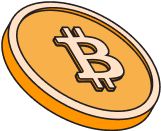How to Choose an Exchange to Buy and Trade Polkadot
Choosing requires a deep understanding of various aspects, from the platform’s fee structure to its security protocols. It's not just about finding a place to buy or sell DOT; it’s about ensuring the platform aligns with your trading habits, offers the necessary tools for analysis, and provides a secure environment for your assets. By carefully evaluating these factors, you can enhance your trading experience and optimize your investment strategy.
Trading Fees
When selecting a platform to trade Polkadot, understanding the fee structure is essential. Exchanges can charge different types of fees, including flat transaction fees, percentage-based trading fees, or fees that vary depending on the volume traded. Additionally, some platforms may offer discounts on fees for using their native tokens or for high-volume traders. These fees can significantly affect your overall profitability, especially if you’re an active trader, so it’s crucial to choose an exchange with transparent and competitive fee structures.
Security
Security should be a top concern when trading Polkadot on any platform. Look for secure exchanges that employ advanced security measures such as multi-signature wallets, two-factor authentication (2FA), and end-to-end encryption. Additionally, platforms with a proven track record of handling security breaches effectively, if any have occurred, offer added reassurance. Remember, the safety of your funds and personal information should never be compromised.
Payment Methods
The range of payment methods available on an exchange can influence your trading experience. Whether you prefer bank transfers, credit cards, or even payment via cryptocurrencies, selecting a platform that supports your preferred method is important. Additionally, consider the processing times and any additional fees associated with different payment options, as these can affect the speed and cost of funding your account or withdrawing your profits.
Accessibility
The accessibility of an exchange is vital, particularly for users in different regions. Ensure the platform is available in your country and supports your local currency. Moreover, the exchange should offer a user-friendly interface that caters to both beginners and experienced traders, allowing you to navigate the platform easily, whether on a desktop or mobile device. An accessible platform enhances your ability to execute trades efficiently and manage your portfolio effectively.
Support
Reliable customer support is a key feature of any reputable exchange. Whether you encounter issues with deposits, withdrawals, or technical problems, having access to prompt and knowledgeable support can make a significant difference. Look for exchanges that offer multiple channels of support, such as live chat, email, and phone support, and ensure they have a reputation for resolving issues quickly and effectively.
Liquidity of Crypto Assets
Liquidity is a critical factor in determining the ease of buying and selling Polkadot. High liquidity on an exchange ensures that you can enter or exit positions with minimal price slippage, which is especially important during times of high market volatility. Platforms with deep liquidity pools also provide more stable prices and faster trade execution, making them ideal for both large and small traders.
Reputation Amongst DOT Traders
The reputation of an exchange within the Polkadot trading community can provide valuable insights into its reliability and performance. Exchanges that are highly regarded by DOT traders are likely to offer better security, user experience, and customer service. Checking reviews, community feedback, and user testimonials can help you gauge the trustworthiness and overall satisfaction of an exchange before you commit to it.
User Interface
The user interface of an exchange plays a crucial role in your overall trading experience. A well-designed interface allows for easy navigation, quick access to essential features, and seamless execution of trades. Whether you’re new to trading or an experienced trader, a clear and intuitive interface can enhance your efficiency and reduce the likelihood of errors. Choose a platform that provides a balance between functionality and ease of use.
How to Start Trading DOT
Getting started with trading Polkadot (DOT) involves a series of essential actions that ensure you're ready to participate in the market effectively and securely. Whether you're new to cryptocurrency or an experienced trader, following the correct procedures is crucial to safeguarding your assets and making informed trading decisions.
- Sign Up: Choose a Polkadot exchange and register by providing your email address and creating a strong password.
- Verify Your Identity: Complete the KYC process by submitting the necessary identification documents as required by the platform.
- Deposit Funds: Add funds to your account using a preferred payment method, such as bank transfer, credit card, or cryptocurrency deposit.
- Select a Trading Pair: Choose the DOT trading pair (e.g., DOT/USDT) that you want to trade.
- Execute the Trade: Enter the amount of Polkadot you wish to buy or sell, and confirm the trade to execute your order.
- Secure Your Holdings: Transfer your DOT to a secure wallet if you’re holding long-term, or keep it on the exchange if you plan to trade actively.
By carefully following these steps, you'll establish a solid foundation for your DOT trading activities, setting yourself up for a smooth and successful experience in the market.
Exchange Fees When Buying and Selling DOT
When trading Polkadot, it's crucial to be aware that a variety of fees may come into play, each of which can impact your overall trading costs. These fees can vary depending on the platform you use, the type of transactions you engage in, and even the trading strategies you implement. Understanding these costs is essential for effective budgeting and can help you make more informed decisions, ensuring that your trading activities remain profitable over time. By gaining a clear understanding of the different types of fees involved, you can better manage your resources and optimize your trading experience.
Maker Fees
These fees are charged when you add liquidity to the market by placing a limit order that is not immediately filled. Maker fees are generally lower than taker fees and can vary depending on the exchange and trading volume.
Taker Fees
Taker fees apply when you remove liquidity from the market by placing an order that is immediately matched with an existing order. These fees are typically higher than maker fees and are a significant cost to consider for active traders.
Deposit and Withdrawal Fees
Some exchanges charge fees for depositing or withdrawing funds, whether in fiat or cryptocurrency. These fees can vary widely depending on the payment method or network conditions, so it’s important to check them before making transactions.
Trading Commission
A trading commission is a small percentage fee applied to each trade. This fee can be fixed or tiered based on your trading volume. Understanding these commissions is crucial for calculating the true cost of trading.
Types of Polkadot Exchanges and Trading Platforms
Polkadot (DOT) can be traded on a variety of platforms, each offering unique features that cater to different trading preferences and strategies. As the market grows and evolves, the best cryptocurrency exchanges provide traders with tailored options to meet their specific needs, whether they are beginners or seasoned investors seeking advanced tools. By exploring and understanding the different types of exchanges and trading platforms available, you can make an informed choice that aligns with your trading goals and experience level, ultimately leading to a more efficient and rewarding trading experience.
Fiat-to-Crypto Exchanges
Fiat-to-crypto exchanges provide a gateway for users to purchase Polkadot directly using traditional currencies such as USD, EUR, or GBP. These platforms are particularly beneficial for beginners, offering a straightforward entry into the cryptocurrency market. With a user-friendly interface and the ability to directly convert fiat money into DOT, these exchanges make it easy for new traders to get started. In addition to simplifying the buying process, they often come with additional features like customer support and educational resources, making them a reliable choice for those new to cryptocurrency trading.
Crypto-to-Crypto Exchanges
Crypto-to-crypto exchanges cater to traders who already own other cryptocurrencies and wish to trade them for Polkadot. These platforms are ideal for users looking to diversify their digital asset portfolios without the need to convert their holdings back into fiat currency. By offering a wide range of trading pairs, such as Bitcoin (BTC) to Polkadot (DOT), these exchanges enable users to seamlessly switch between different cryptocurrencies. For experienced traders who are actively managing a diverse portfolio, crypto-to-crypto exchanges provide the flexibility and variety necessary to execute complex trading strategies.
Margin and Leverage Trading Platforms
Margin and leverage trading platforms allow traders to borrow funds to increase the size of their trading positions, potentially amplifying both profits and losses. These platforms are geared toward more experienced traders who have a solid understanding of the risks involved with leveraged trading. By using borrowed capital, traders can maximize their exposure to market movements, but this also increases the potential for significant losses if the market moves against them. For those who are confident in their trading strategies and risk management skills, margin and leverage trading platforms offer opportunities to enhance returns in the volatile world of cryptocurrency trading.
Decentralized Exchanges (DEXs)
Decentralized exchanges (DEXs) provide a unique way to trade Polkadot by allowing users to trade directly from their wallets without relying on a central authority. These platforms offer enhanced privacy and security, as they eliminate the need for intermediaries and reduce the risk of centralized hacks. However, DEXs may come with certain trade-offs, such as lower liquidity and higher slippage, which can affect the ease and cost of executing trades. For traders who prioritize control over their assets and value the decentralized nature of cryptocurrency, DEXs offer a compelling alternative to traditional exchanges.
Derivatives Exchanges
Derivatives exchanges offer advanced trading options that allow users to speculate on the future price of Polkadot through instruments like futures contracts, options, and other derivatives. These platforms are designed for experienced traders who are looking to hedge their positions or leverage market movements to their advantage. Trading derivatives can be complex and carries a higher level of risk, making it more suitable for those with a deep understanding of market dynamics and risk management. For traders who are well-versed in these strategies, derivatives exchanges provide powerful tools to maximize potential returns and navigate the complexities of the cryptocurrency market.
The Unique Value Proposition of Polkadot
Polkadot stands out in the cryptocurrency space due to its innovative approach to blockchain interoperability and scalability. Its multi-chain framework enables multiple blockchains to operate in parallel, improving transaction speed and efficiency. Additionally, Polkadot’s ability to facilitate cross-chain communication without the need for intermediaries sets it apart from other blockchain projects. This unique value proposition not only enhances its appeal to developers but also influences the choice of exchanges and trading strategies for those looking to invest in DOT.
History of Polkadot
Polkadot (DOT) was conceived by Dr. Gavin Wood, co-founder of Ethereum, and was launched in May 2020. Designed as a multi-chain platform, Polkadot allows different blockchains to communicate and share data, addressing the issues of scalability and interoperability in the blockchain ecosystem. Its unique architecture includes a central relay chain and multiple parachains, enabling it to support a wide range of decentralized applications (dApps) and services. Since its launch, Polkadot has rapidly gained traction, becoming one of the top cryptocurrencies by market capitalization.
The Future of Polkadot in the Cryptocurrency Market
Polkadot’s future in the cryptocurrency market appears bright, thanks to its robust technology and growing ecosystem. As more projects launch on Polkadot’s platform and the demand for interoperability increases, DOT’s value proposition is likely to strengthen. Additionally, upcoming upgrades and potential partnerships could further enhance Polkadot’s position as a leader in the blockchain space. For investors, Polkadot’s innovative approach and active development suggest that it could remain a significant player in the market for years to come.
FAQ: Polkadot Exchanges and Trading Platforms
Can I buy Polkadot directly with my bank account?
Yes, many exchanges allow you to buy Polkadot directly using a bank account. This method is typically straightforward and involves linking your bank account to the exchange. However, processing times and fees can vary depending on the platform and your bank, so it’s important to review these details before making a purchase.
What should I do if my Polkadot transaction is stuck on the blockchain?
If your Polkadot transaction is stuck on the blockchain, it may be due to network congestion or insufficient transaction fees. First, check the transaction status using a blockchain explorer. If the transaction remains unconfirmed for an extended period, contact the exchange’s customer support for assistance. In some cases, you may need to wait for the network to process the transaction.
How do I find the best exchange for trading Polkadot?
To find the best exchange for trading Polkadot, consider factors such as fees, security, liquidity, and user experience. Research user reviews, check the exchange’s reputation within the DOT community, and ensure that the platform supports your preferred payment methods and has strong security measures in place.
What is the difference between spot trading and derivatives trading of Polkadot?
Spot trading involves buying and selling Polkadot for immediate delivery, based on the current market price. Derivatives trading, on the other hand, involves contracts that derive their value from the price of Polkadot, such as futures or options. Derivatives trading allows for speculation on the future price of DOT without owning the actual asset, often with leverage.
Can I stake Polkadot on exchanges?
Yes, many exchanges offer staking services for Polkadot, allowing you to earn rewards by participating in the network’s proof-of-stake (PoS) consensus mechanism. Staking on an exchange is convenient, as it typically requires minimal technical knowledge. However, it’s important to understand the terms, including lock-up periods and reward distribution, before staking your DOT.
What are the risks of trading Polkadot on margin?
Trading Polkadot on margin involves borrowing funds to increase your trading position, which can amplify both gains and losses. The main risks include potential margin calls if the market moves against your position, which could lead to significant losses. Additionally, margin trading often comes with interest costs on borrowed funds, adding to the overall risk.
How can I minimize fees when trading Polkadot?
To minimize fees when trading Polkadot, consider using limit orders instead of market orders to reduce taker fees, and look for exchanges that offer discounts for high-volume trading or for using their native tokens to pay fees. Additionally, compare deposit and withdrawal fees across platforms to find the most cost-effective options.
How can I avoid scams when trading Polkadot?
To avoid scams when trading Polkadot, use reputable exchanges with strong security measures and positive reviews. Be cautious of unsolicited offers or platforms that promise guaranteed returns. Always verify the legitimacy of the exchange and ensure that the website uses HTTPS. Additionally, never share your private keys or account information with anyone.
Can I use automated trading bots for Polkadot?
Yes, many exchanges support the use of automated trading bots for Polkadot. These bots can execute trades based on predefined strategies, allowing you to take advantage of market opportunities without constant monitoring. However, using trading bots requires careful setup and an understanding of market conditions, as they can amplify losses if not properly managed.
Are there any regulatory concerns when trading Polkadot?
Regulatory concerns can vary depending on your location and the exchange you use. Some regions like Asia or Europe have strict regulations on cryptocurrency trading, which may affect your ability to trade Polkadot or require you to complete extensive KYC procedures. It’s important to understand the legal landscape in your country and ensure that the exchange you choose complies with local regulations.
Conclusion: The Best DOT Buy & Sell Platforms Ranked by Bitcoin.com
Selecting the right platform for trading Polkadot is essential for maximizing your trading efficiency and ensuring the security of your assets. Our comprehensive rankings consider various factors to help you make an informed decision. These rankings are regularly updated to reflect the latest trends and developments, so be sure to check back frequently to stay informed about the best Polkadot exchanges.
Business & Partnership Enquires
For business or partnership queries, please contact us through affiliates@bitcoin.com. Our marketing experts will assist you as soon as possible.


























